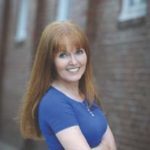Excerpt from Volume 8
A CONVERSATION WITH
SUE ELLEN THOMPSON
ABOUT THEY
With Anne Colwell, Poetry Editor
In her article for the Las Vegas Review Journal entitled "Jenner Might Not Be Transgenderism's
Best Face," Kathleen Parker writes:
I’ve learned more about transgender individuals and their families from the tender poetry of Sue Ellen Thompson than from magazine displays and televised hype. In her latest collection, They, Thompson writes lovingly of her own transgender daughter’s journey and the challenges her evolution poses for three generations of family. I commend her book to those interested in insight over titillation.
Sue Ellen Thompson's poetry collection They offers readers a narrative arc that juxtaposes relationships between grandfather and granddaughter, mother and daughter, father and daughter, and opens for us, with great honesty and love, the struggles and joys of dealing with a transgender child. The poems in this collection are colloquial and crafted, deeply personal and universal. Hilda Raz, the author of What Becomes You urges, "Read it. It may change your life."
Colwell: In his thoughtful essay “Disparate Voices,” Hal Wilson says that you “curate” the postcards from Thomasin to bring together her voice as she writes to her grandfather and your voice as you struggle to come to terms with and accept her movement beyond the “she” of gender. I want to push the metaphor in a slightly different direction and suggest that you orchestrate the voices. One of the things that occurred to me as I read the book was that the postcards are - almost certainly unintentionally – poetic in their voice and their detail, while the poems – so carefully crafted and deeply musical – also evince a plainspoken forthrightness. Would you talk a little bit about how you see these two voices interacting?
Thompson: The decision to include the postcard poems came at the very end, in the last few months before the manuscript was complete. My father had saved them all and given them to me the week before he died, and in rereading them, I became aware of how uncomplicatedly loving my child’s voice was when writing to her grandfather—and how, in contrast, complicated my feelings toward her had been since she passed through adolescence and gradually moved toward a new gender identity (I’m going to refer to Thomasin as “she” here so as not to confuse “them” with the postcards themselves). I didn’t want everything filtered through my voice, as tends to be the case in my poetry. At the same time, I didn’t want to put words in my child’s mouth. So I decided to let the postcards speak for themselves.
But to answer your question, I don’t see the two voices—my own and my child’s—interacting much at all. She is speaking to her grandfather and I am speaking about my father. We don’t really speak to each other much in these poems. It was my hope in writing the book that my father would become the “medium” through which a mother and her child could communicate and find common ground. So in that sense, “orchestrate” is a good word to describe what I was trying to do.
Colwell: You and I have talked some about the question of a poet’s right to explore personal territory that readers might consider off limits or embarrassing. Whenever any writer uses personal experience, we risk exposing ourselves, but also the people in our lives, in ways that may seem problematic or unfair. Would you talk about your experience with balancing the creative necessity of self-expression with the natural desire to protect our own and our loved ones’ privacy?
Thompson: This has always been a huge issue for me, in this book even more so. Because I saw the poems as portraying my child in such a positive light, it never really occurred to me that she/they would be upset about them—the postcard poems in particular. But we exchanged some very painful e-mails in the year leading up to the book’s publication. If I thought that not publishing the book would turn her into my best friend overnight, I probably would have withdrawn it. But I knew that wouldn’t be the case. I also knew that if I didn’t “come out” as the parent of a transgender child as bravely as she had come out to us nine years earlier, I would have missed an opportunity to expand my generation’s understanding of the issues surrounding gender identity. I had broached the subject in conversation with a few close friends, but they all looked puzzled and confessed that they just didn’t “get it.” So I knew I had to take a more public stance—to use poetry as a way of initiating a larger conversation.
I guess my own rule of thumb has been to ask myself, first of all, how “private” the information really is. In most cases I am dealing with well (if not widely) known facts. My child had been very open about her “genderqueer” status for a number of years before this book was published. I also ask myself whether the “private” information in the poem serves a larger and more important truth. In this case, I thought it clearly did, because almost everyone I knew—even as recently as a year ago—was still confusing gender identity with sexual orientation.
This doesn’t mean that it has made my relationship with my adult child any easier. But I knew that if I didn’t publish this book, I would be denying who I am and what I do, which is to write about profound, complex emotions in the context of family and marriage.
Colwell: Many of the poems in They explore how experience changes and challenges language. I’m thinking, for example, of poems like “At 89, My Father Takes Up Swearing,” “Echo Rock,” and the title poem, “They.” One of the things poems can do is to nudge the language to the very edge of the expressible. Like dreams, poems contain the thing that is just beyond the reach of our everyday grammars. Would you talk a little bit about the way that your poems confront learning and “unlearning the rule” about the intersection between language and experience?
Thompson: Deciding how and where to use the plural pronoun “they” when referring to my child in this book posed an enormous challenge. As an English major and sometime teacher of college students, I have always believed in the importance of obeying the rules as far as grammar is concerned. But my child’s request that I refer to her with a plural pronoun caused real difficulties in putting this book together. Some of the poems are written about her as a child, when we all thought of her as “she.” Many others were written about her from my father’s perspective, and I can tell you right now that he never thought of her by any other pronoun, despite her boyish appearance and dress. Many of the poems had been published individually in literary magazines, with no context to explain an unconventional use of pronouns. In the end, I think there were only two or three poems written about her after she came out as transgender that referred to her as “she.” I tried rewriting them using “they” and the result was just too confusing. And given the widespread lack of understanding (at the time) about pronoun preferences and the transgender community, my editor and I decided to stick with the language that would be most readily understood by my audience—primarily parents and grandparents.
So if I was pushed to the edge of the cliff as far as language is concerned, I clearly drew back rather than take the leap. It bothered me at the time and probably always will, but I decided that exploring the issue of my child’s humanity—as opposed to masculinity—was the most important thing. And the best way to do that was to use language in a way that my readers would understand. If I had written these poems five years from now, the outcome might have been quite different.
Colwell: In line with that question, could you also give us some insight into your use of established poetic form in the book? I’m thinking especially of sonnets like “My Father’s Laundry” and “A Birthday Gift,” and also the beautiful - and to me very “Bishop-like” villanelle - “Moving Out.”
Thompson: I am hardly the first poet to use form as a container in which to place difficult emotions. A widowed father’s helplessness, a toddler’s adorably headstrong behavior, a young adult’s final departure from the family home—these are subjects that could so easily lead a writer into the sentimentality trap. Using established forms is the best way I know of to resist this temptation.
I also have lots of off-rhymed ABAB, ABCB, and ABACA poems, as well as a “nonce form” poem called “July 17.” I use rhyme and form to divert my own attention from the subject matter, which might otherwise prove overwhelming.
Colwell: A question about compositional process: the book has a loose narrative arc and the arrangement of the poems moves the reader through important moments in your life with Thomasin and your father. At what point did you conceive of this arc and this arrangement? Did you know before you started writing the poems for the book, or did you realize in the middle of writing these poems that they were moving in this direction?
Thompson: There is definitely a “narrative arc” in the book, although the poems themselves are not arranged chronologically. I did not start thinking about how the poems would be arranged until they were all written and spread in piles across my office floor. I decided that I did not want to foreground the transgender issue, but that I wanted that understanding to dawn gradually on the reader—much as it had on me. I also wanted to place that discovery in the context of other lives—my own, my father’s—that were moving forward even as this understanding began to take shape. I actually use the word “transgender” only once in the book, fairly close to the end. So I wanted the book to present not just a narrative about gender identity but one about family life, with memories of my own childhood and relationship with my parents coexistent with those about raising a very strong-willed and unconventional child, along with others about leaving New England to come to the Eastern Shore just as my father was struggling with the indignities of old age. Above all, I wanted this to be a book about the love of a grandchild for her grandfather, and I wanted the structure of the book to follow that relationship, via the postcards, to its purest expression in the final poem, “Inheritance.”
Colwell: Finally, I want to ask a broader question about poetry. The powerful response that I’ve had to the book and that I’ve seen this book elicit from my students and from fellow readers suggests to me that, despite what many people think, poetry does not or does not have to occupy a rarified world. Do you have any thoughts about the cultural place of poetry going forward?
Thompson: Perhaps because I have spent so little time in the academic world, and perhaps because neither of my parents graduated from college, I have always thought of poetry as something that anyone should be able to read and understand—although I admit it takes an education and some training to appreciate the subtleties of craft. I’ve never understood why more poets don’t write for the people who don’t normally read poetry. To me, the highest compliment a poet can receive is to be told, “I hate poetry, but I loved your book!”

